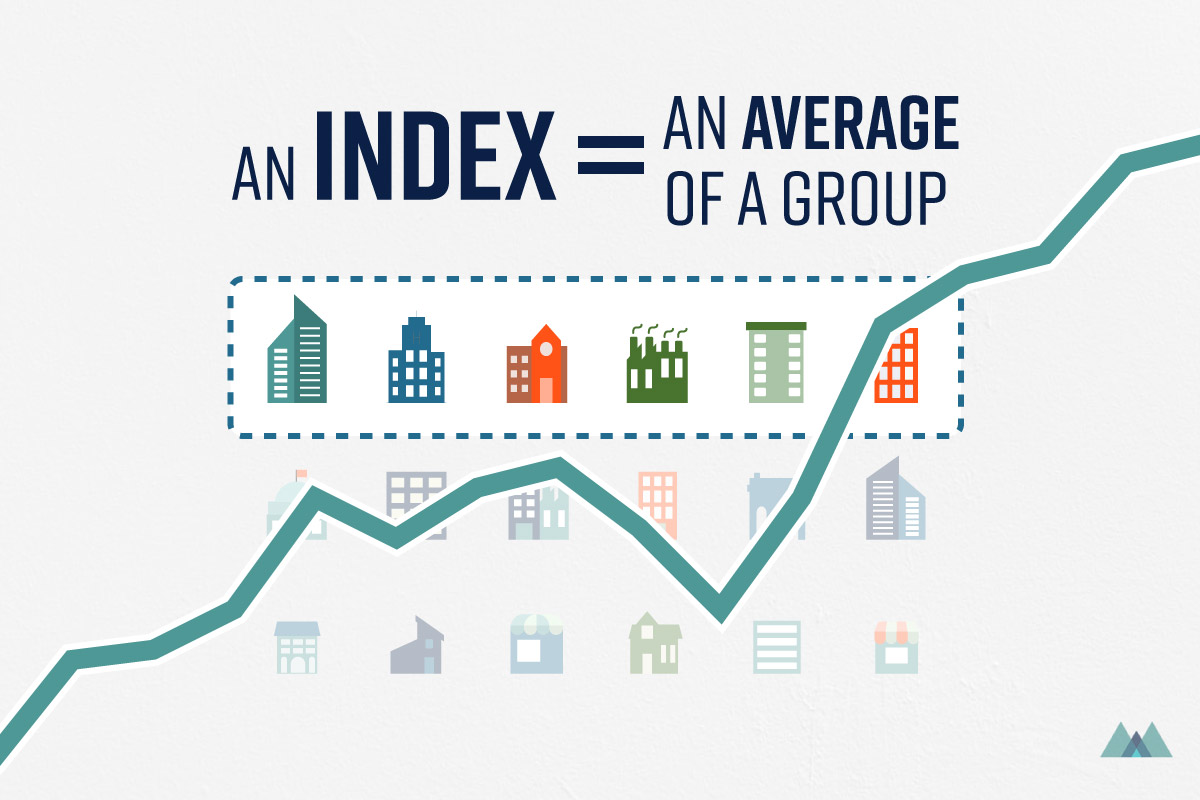An Index Means an Average of a Group
An index essentially means an average of a group. Financial people group stocks or bonds based on their rules, and calculate the average to show how the group performs.
For example, the S&P 500 means a list of the 500 largest companies in the U.S. The S&P 500 Index can be thought of as the average price of 500 stocks on the list.
Since it is too hard to follow every stock in the U.S, the S&P 500 works as an indicator for how well the overall U.S market is performing. If the S&P500 index moves up in value, it is because the 500 companies went up in value overall. This quickly shows the U.S market is performing well on a given day.
Because the U.S. economy is big and diverse, there so many other indexes to track the performance of a market or a sector. Dow, or Dow Jones Industrial Average, is another index showing how 30 largest publicly owned companies perform. NASDAQ, or Nasdaq Composite, shows how stocks listed in the NASDAQ market perform.
There are so many indexes. Basically countries with stock markets have their own indexes such as S&P/TSX in Canada, Hang Seng HSI in Hong Kong, and Nikkei 225 in Japan. There are small cap indexes that comprise of stocks from small companies, green energy indexes that comprise of stocks from clean energy companies. Each index has their own rules of including components and calculating results.
Monkey Index: A study simulating 100 blindfolded monkeys throwing darts at financial papers to create their own indexes showed that almost all of the monkeys outperformed the market. The study continues on, however, to talk about how people with more financial knowledge outperforms people with less knowledge.
Index & Index Mutual Funds
An index is just a number, not something for sale, but many index mutual funds are created to track the performance of an index. For example, a S&P 500 index fund tries to mimic the exact weighting and selection of stocks in the S&P 500 index to get to as close of a performance as possible to the index.
Instead of dedicating time and resources for research, analysis, and active trading, index mutual funds (or index funds) aim to match the market performance, this is considered passive management.
Index & ETFs
Typically an Exchange Traded Fund (ETF) follows a specific market index. Just like an index mutual fund can follow the S&P 500 index, there are multiple ETFs that track the S&P 500 index.
Some ETFs are designed to follow a very specific index, for example, to follow an only energy sector from the S&P 500, which means this index specifically follows energy related companies among the top 500 companies in U.S.
Again, an index simply means a group of stocks or bonds, and financial people make their own indexes and name them the way they want.

Time's up

